Premium Only Content
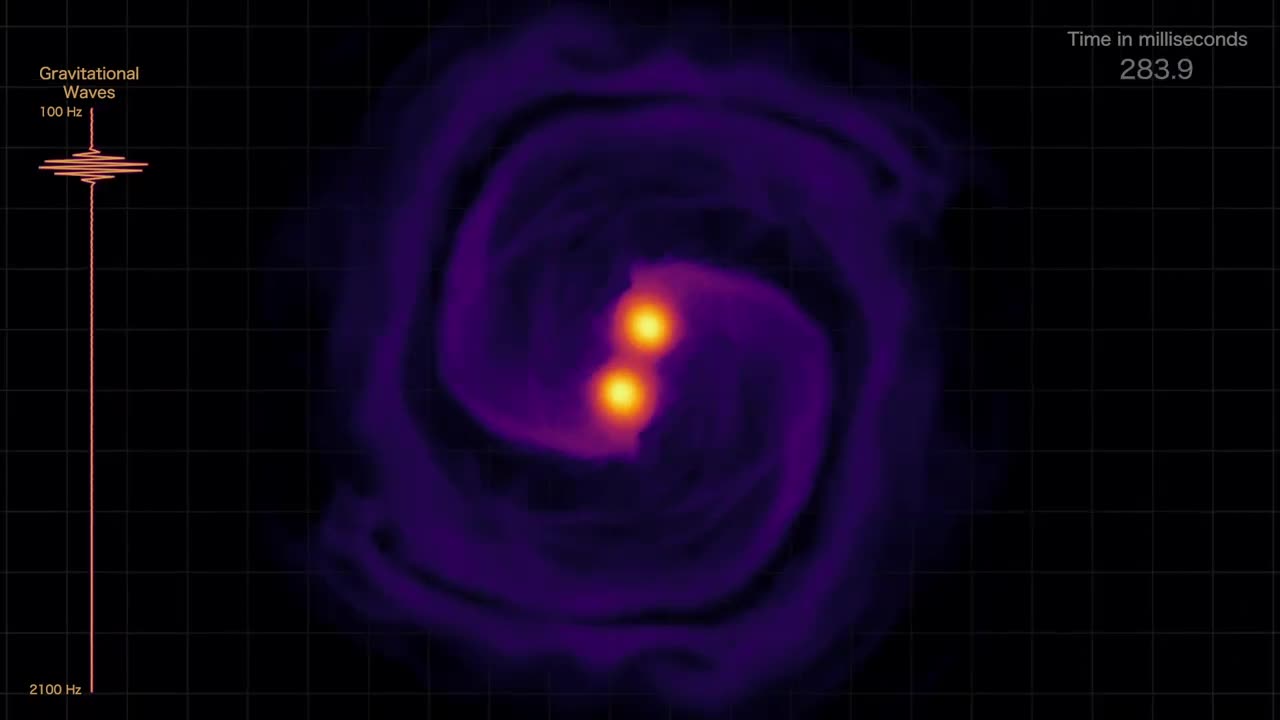
Neutron Star Merger Simulation with Gravitational Wave Audio
This simulation tracks the gravitational wave and density changes as two orbiting neutron stars crash together. Dark purple colors represent the lowest densities, while yellow-white shows the highest. An audible tone and a visual frequency scale (at left) track the steady rise in the frequency of gravitational waves as the neutron stars close. When the objects merge at 42 seconds, the gravitational waves suddenly jump to frequencies of thousands of hertz and bounce between two primary tones (quasiperiodic oscillations, or QPOs). The presence of these signals in such simulations led to the search and discovery of similar phenomena in the light emitted by short gamma-ray bursts.
Credit: NASA's Goddard Space Flight Center and STAG Research Centre/Peter Hammond
Scott Wiessinger (KBRwyle) - Lead Producer
Francis Reddy (University of Maryland College Park) - Lead Science Writer
Peter Hammond (University of Southampton) - Lead Visualizer
Source: NASA
-
 1:18:44
1:18:44
Michael Franzese
18 hours agoSweeney Jean Backlash, Manhattan Massacre, and Clinton Collusion | LIVE
67.5K21 -
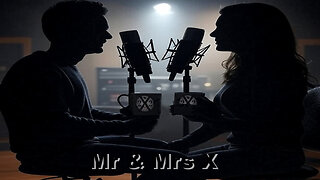 UPCOMING
UPCOMING
X22 Report
1 hour agoAmerica’s Back, Those Who Tried To Destroy American Will Face Justice - Ep 1
5.11K -
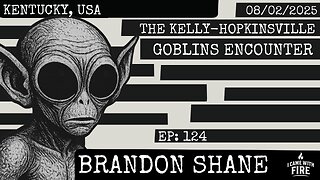 LIVE
LIVE
I_Came_With_Fire_Podcast
9 hours agoThe Kelly-Hopkinsville Goblins Encounter, Synchronicity, & Interdimensionality
1,579 watching -
 LIVE
LIVE
Grant Cardone
4 hours agoReal Estate Interactive
1,697 watching -
 1:10:41
1:10:41
Wendy Bell Radio
7 hours agoPet Talk With The Pet Doc
85.9K9 -
 6:47:22
6:47:22
FyrBorne
7 hours ago🔴Warzone M&K Sniping: Drop In For Battlefield 6 Info From The Event
147K2 -
 29:00
29:00
DeVory Darkins
17 hours ago $20.60 earnedTrump smacks Russia with CHILLING WARNING Cincinnati officials EXPLODE over viral fight
56.3K108 -
 1:12:40
1:12:40
Omar Elattar
19 hours ago71 Mins With A Hollywood Comedian & Dating Expert: #1 Reason Men Can't Find "The One" (4,000 Study)
18.5K4 -
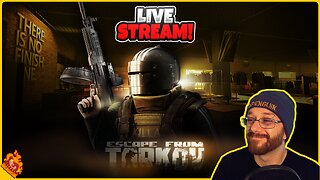 LIVE
LIVE
BBQPenguin_
7 hours agoTasking & PVP! ALL DAY!
67 watching -
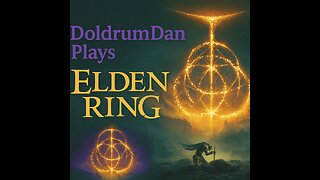 6:08:10
6:08:10
DoldrumDan
7 hours agoNEW PC TEST #2 NIGHTREIGN INTO FIRST TIME SEEING ELDEN RING IN HD
19.6K1